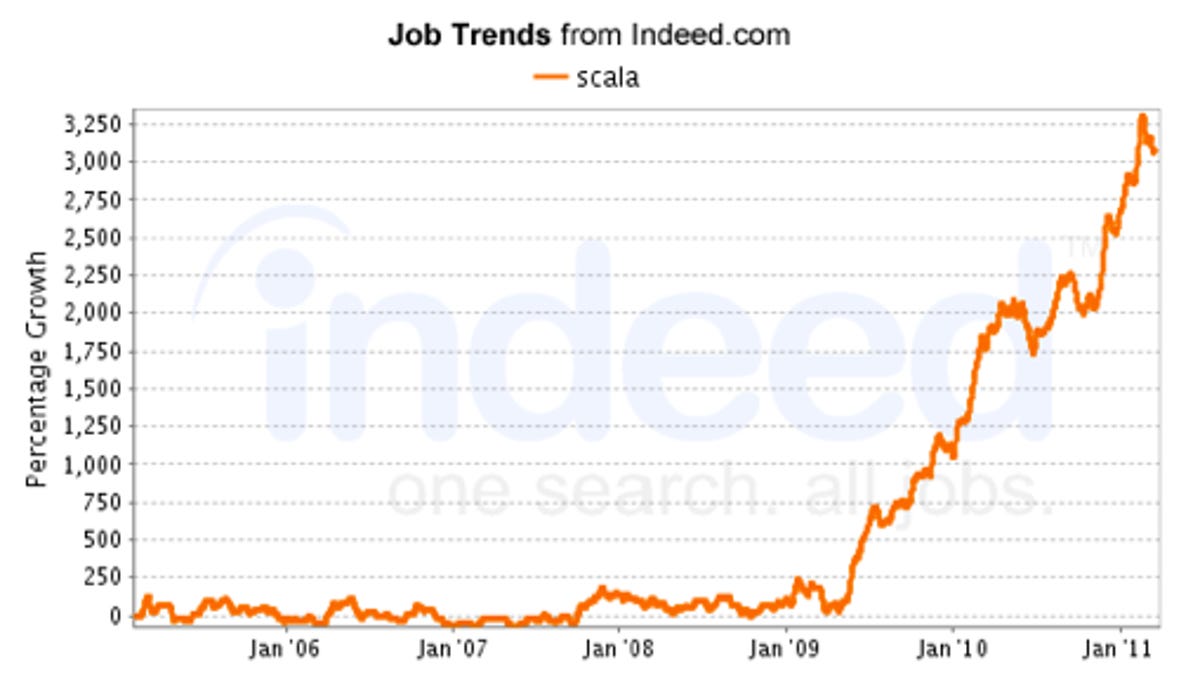Open-source Scala gains commercial backing
Will Scala be the next Java, PHP or Ruby? A newly funded start-up aims to find out.

The open-source Scala programming language is getting a big boost today in form of venture-funding for a new start-up.
Typesafe is launching the first commercial entity behind Scala, founded by Scala creator Martin Odersky and flush with $3 million from Greylock Partners.
Scala is a general purpose programming language designed to express common programming patterns in a concise, elegant, and type-safe way. It integrates features of object-oriented and functional languages and reduces code size in comparison to Java.
Greylock also funded Red Hat and Cloudera so it's no surprise that Typesafe will be taking a page from those companies and offer training and consulting services and a subscription for what it calls the Typesafe Stack. The stack combines a Scala runtime with an event-driven middleware layer known as Akka and Eclipse-based tools.
Twitter's high-profile migration to Scala two years ago was a catalytic moment for the programming language--one that has helped Scala interest and adoption encroach further into Java's turf.
In April, Theguardian.co.uk switched from Java to Scala, citing simplicity, cleanliness of code, and ease of development as prime motivators.
Odersky told CNET via e-mail that the Typesafe stack is aimed at becoming a new application platform that takes better advantage of multicore architectures and distributed systems. The overall idea is that high-volume data-driven sites can take advantage of their existing JVM architecture while switching from Java to Scala without negatively affecting their infrastructure.
It remains to be seen if the world is crying out for a Scala stack, but as the volume of data transactions continues to increase, any tools that make the development and management of applications easier and more efficient will find an audience.

